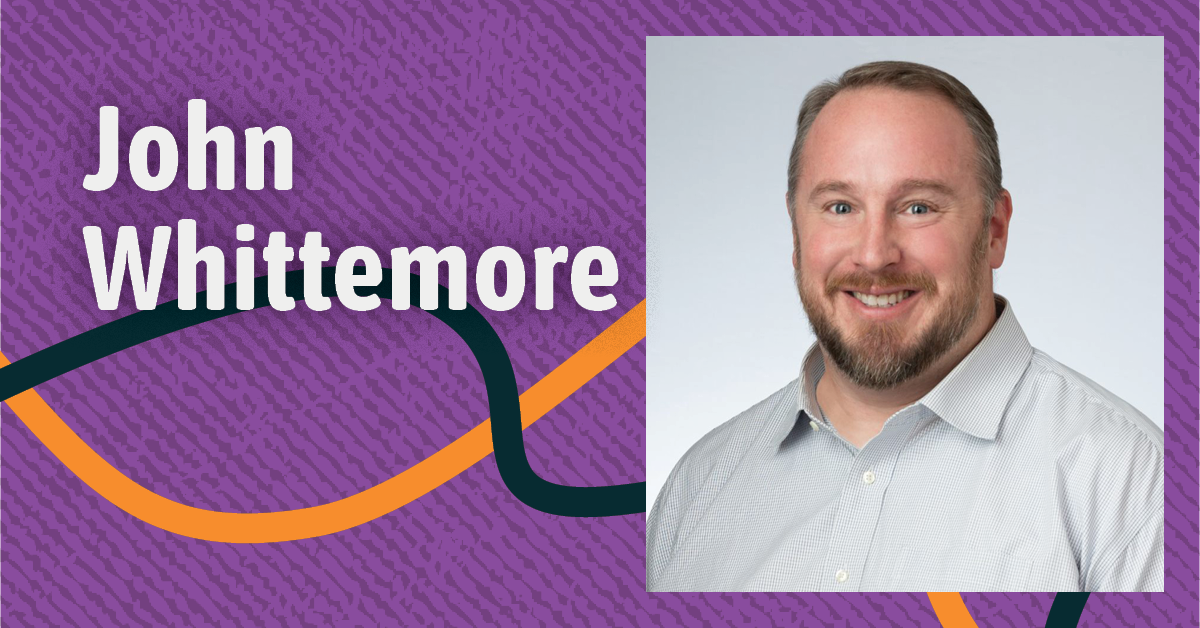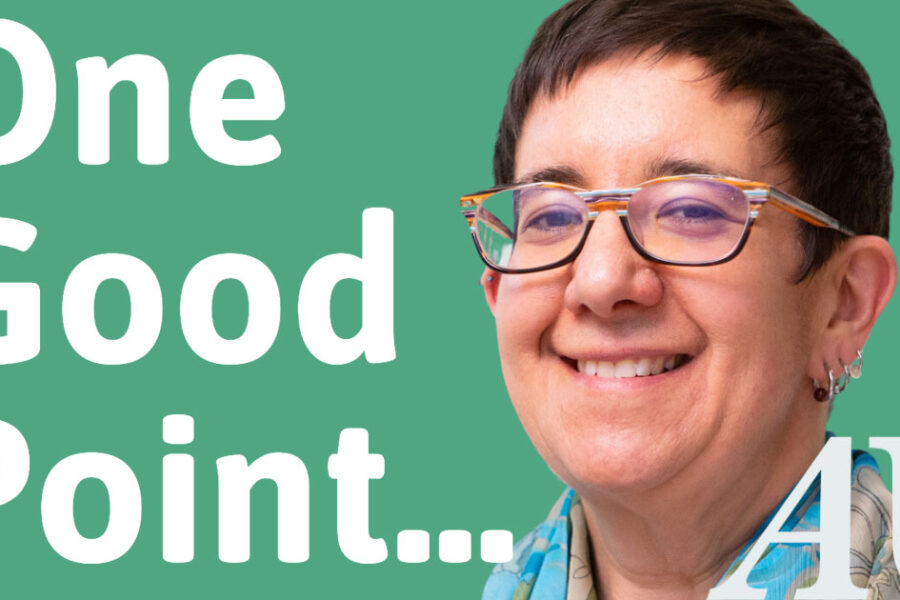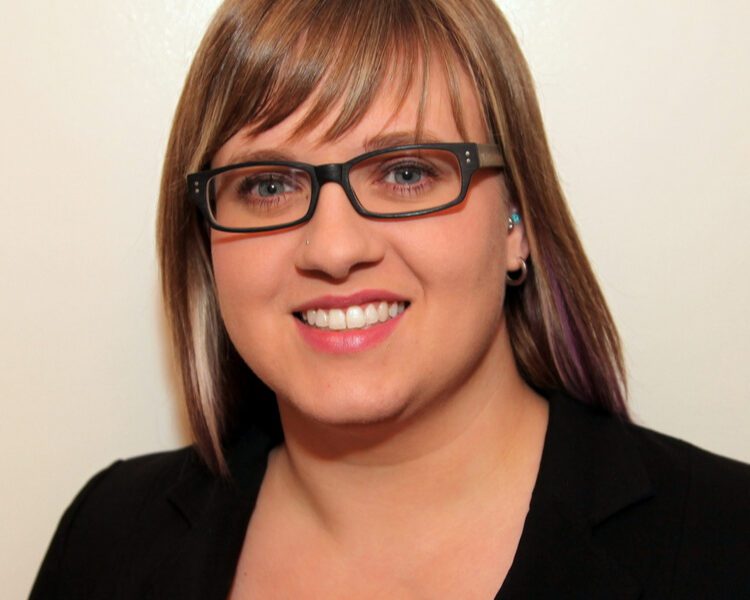John Whittemore’s job as the Senior Director of Program Operations at Aspire Living and Learning is all about helping people reach their full potential. He takes seriously the work of helping lead an organization that for forty years has sought to bring person-centered support to adults with intellectual and developmental disabilities, autism, behavioral health challenges, and complex medical needs. For Whittemore, being person-centered is at the core of providing sustainable and ethical support, and that means emphasizing that everyone in the community has knowledge they bring to the table—and that communities are stronger when every person has the tools to make empowered decisions about their own lives. As he says, “It’s about giving people an opportunity to use their own strength and their own skills to be successful.”
Whittemore graduated this February from Antioch University’s online Master of Business Administration program, where he studied how to lead in business while also elevating the people inside of organizations—employees, clients, and the larger community. This is, in many ways, an outgrowth of his work at Aspire, and Whittemore has long been drawn to organizations like this, which are successful across many metrics, of which financial success is just one. Of course, Aspire is a nonprofit, which means that it doesn’t try to be profitable beyond breaking even.
At Antioch, the concept of prioritizing other metrics is formalized into the concept of the “triple-bottom-line,” where businesses prioritize their impacts on people and the planet alongside profit. This updated perspective acknowledges that a business must be financially solvent while also recognizing the people who work there and their impacts on the environment. For Whittemore, this way of approaching running organizations not only explains how he has already been working at Aspire but also helps to point his way to future contributions, acting as a guide to making the most impact.
Leading Others to Find Their Own Agency
“Being able to develop people is really important, but not everyone has those skills,” he says. “If I can become a better leader and help people become better leaders themselves, then I feel like I’m doing what I should do for those who work with me.”
The concept of “developing people” is, at its core, about helping people build confidence in their own skills. It’s one of the things that drew Whittemore to the Antioch MBA because it goes beyond balancing books and budgeting to focus on the people that make an organization or business thrive.
Whittemore oversees many of the day-to-day operations at Aspire, including programming, financial support, and clinical and quality assurance. But he doesn’t do this work alone: he supervises a team. And he needs to be able to trust these team members to make their own decisions. One way Whittemore supports his staff is through weekly one-on-one meetings. This facilitates open lines of communication and support. His staff can talk about the challenges they’re dealing with, and rather than him telling them what to do, they can work through the best way to handle the problem together.
In some ways, this mirrors the work Aspire does to help people with disabilities become confident and attuned to their own agency. “Through person-centered planning,” explains Whittemore, “we help people so they can feel good about the decisions they’re making and what they’re doing.”
Building His Own Confidence
Whittemore has worked in non-profits for two decades. He got his start at Eliot Community Human Services, an agency based in Lexington, Massachusetts. This large organization has the goal of “serving the most vulnerable of populations—those at risk, with limited or no resources for help.” For his part, Whittemore provided community connections and programming for kids who had been incarcerated..
He worked at Eliot for six years. Staying in one job for that long helped him begin to build his own leadership skills. He started as a direct support professional, working directly with kids in the program. Before this, he had never felt passionate about his work. Now he felt deeply connected. This connection showed, and he eventually became the program director.
In the jobs that he’s held since then, Whittemore has always focused on leadership, team-building, and bringing out the best in people. And in each position, he has continued to expand both his skillset and his experience of the world. It’s this same drive that led him to the Antioch MBA. As he says, “I just really love to keep developing.”
In the program, he chose to follow the Leadership and Teams concentration. “I found the concentration to be what I was aiming for in getting my MBA,” he says. “It was something that I could use.”
Additionally, the online format permitted him to continue with his vibrant life—working throughout the day and spending time with his family in the early evenings—while also finding time to study, usually in the evenings. Being able to go at his own pace was perfect for balancing all the parts of his life. And he enjoyed the virtual format. As he says, “It was a great experience taking classes online.”
Whittemore came into the program deeply focused on the “people” aspect of the triple bottom line, but he was also quite inspired by the sustainability focus in the program. It was a new perspective he added to his work. “Lessons in some of the Leadership and Teams courses focused on sustainability and natural resources on earth,” he explains. “That certainly pushed me in a different direction around how I think about sustainability, even in my own life.” He also uses that knowledge when examining the impact his nonprofit has on the environment and climate change.
In many ways, he now sees the work of environmental protection, the work of respecting all the people impacted by an organization, and the financial health of the organization itself as deeply interconnected. Without a healthy planet, after all, how can he do the work of helping people reach their full potential? As he says, “We all have a role in how our planet lives.”






